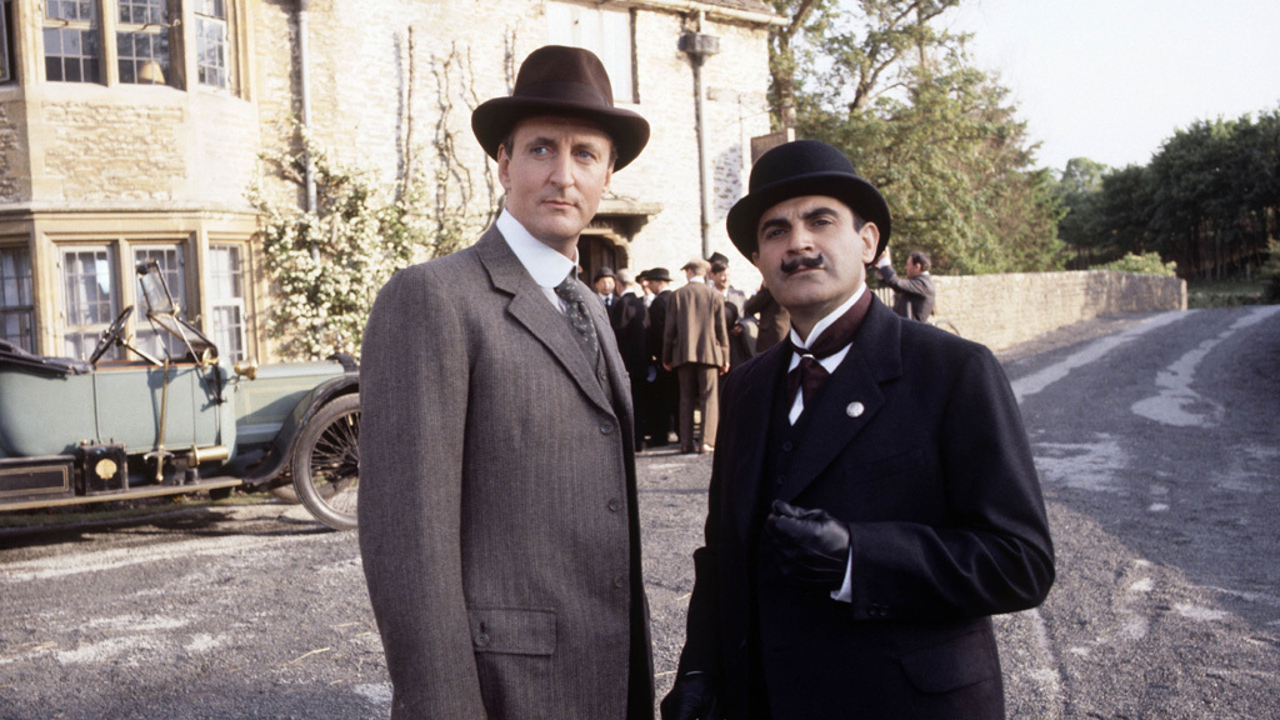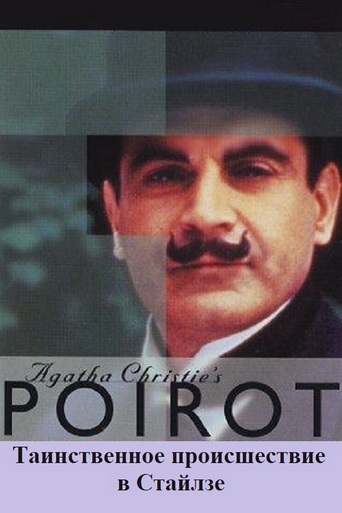

The Mysterious Affair at Styles is a very good example of early Poirot, it's a very good story, but it's the character play and development that's key to the success here. I often think it would have been nice if they'd have run this as a pilot, to set the characters up, and explain Poirot's back story, but it fits in really well nonetheless.It's a wonderfully cosy British murder mystery, you can almost hear the clink of ice in jugs of iced tea. It doesn't have the excitement of many late episodes, but it's still a very enjoyable episode. I really enjoy Michael Cronin's Alfred Inglethorpe and Joanna McCallum's Evie Howard, but the acting in general is excellent. The production values are superb.I know the solution does seem a little far fetched, but it's still cleverly devised, you just need to stretch your imagination a little.
... View MoreThe story opens with Captain Hastings recovering from a WWI injury in a beautiful mansion converted to a convalescent home for soldiers. A newsreel is being shown, one item of which is "Belgium refugees welcomed to our shores." This, the first Christie novel, provides us with the background on why Poirot came to Britain and how he and Hastings met and became fast friends. An old friend of Hastings visits him and invites him to his home, Styles Court. He tells Hastings that his family is very concerned that his mother, Emily, has married a much younger man, Alfred Inglethorp. The family is convinced that Inglethorp is after Emily's money. Soon after arriving at the village of Styles St. Mary, Emily Inglethorp is brutally murdered by strychnine. Also in the village are Belgian refugees, including Poirot. Hastings had met Poirot in Belgium and they quickly re-establish their friendship. Hastings asks Poirot to investigate the murder. The aloof and generally unlikable Alfred Inglethorp immediately is a suspect and gives an incredibly poor showing at the coroner's hearing. But come to find out, Inglethorp has an iron clad alibi for the time in which the strychnine was purchased. And so the investigation continues. This film is visually stunning with its depiction of the the era - the costumes, the shops, the vehicles, the country lanes, the magnificent Styles Court - all beautifully captured. Although somewhat flawed, the mystery and how Poirot unravels it is a darn good yarn. And the Poirot character, with all his eccentricities (the scene where he tries to get the shopkeeper to rearrange her goods into a more logical way is a hoot) is both memorable and engaging. From this story, it is easy to see why Christie became such a popular and enduring mystery writer. This entry in the Poirot series is a real winner.
... View MoreStyles manor was certainly a place dear to the writer,for her first "Poirot" and her last one ("Curtain-Poirot's last case) in which the sleuth dies both take place there.That said "Styles" is not one of Poirot's best cases,and Christie wrote at least twenty books which are superior to it.Interest lies somewhere else.This is the novel which tells us why Belgian Poirot wound up in fair England -which he somewhat despised- and it does not forget the historical background ,with a fine depiction of the WW1 years.If my memory serves me well,Christie wrote the book cause she wanted to take up her sister's challenge: a story where you could never guess whodunit..
... View MoreWorld War One 1917: Lieutenant Hastings (Hugh Fraser) is on sick leave from the army after being wounded in France. His old friend John Cavendish (David Rintoul) invites him to stay at the Cavendish country estate, Styles Court, where there's tension in the family. Cavendish's mother Emily Ingelthorpe (Gillian Barge) has married Albert Ingelthorpe (Michael Cronin) a man twenty years younger than her, and the family believes that he can only be after one thing - her money. That night Emily dies a painful death and the subsequent autopsy reveals that she has been poisoned. In the neighbouring village of Styles St Mary, a number of Belgian refugees have taken up residence including Hastings' old friend Hercule Poirot (David Suchet), the eccentric but clever sleuth who is called in to investigate the murder."The Mysterious Affair At Styles" (1920) was Agatha Christie's first novel and it also introduced her most famous creation to the world, the eccentric little Belgian detective with the egg-shaped head and eccentric mannerisms. This film was made to commemorate the 100th anniversary of Christie's birth in 1890 which fell in 1990. The period detail of World War One was superbly depicted in this film (just look at those automobiles!) Ross Devenish directed the film with care and style while David Suchet, Hugh Fraser and Philip Jackson offered their usual excellent performances. Great care was taken with the supporting cast in which Michael Cronin stands out as the somewhat shifty looking Albert Ingelthorpe."The Mysterious Affair At Styles" has recently been reissued on video and DVD, catch it while you can!
... View More